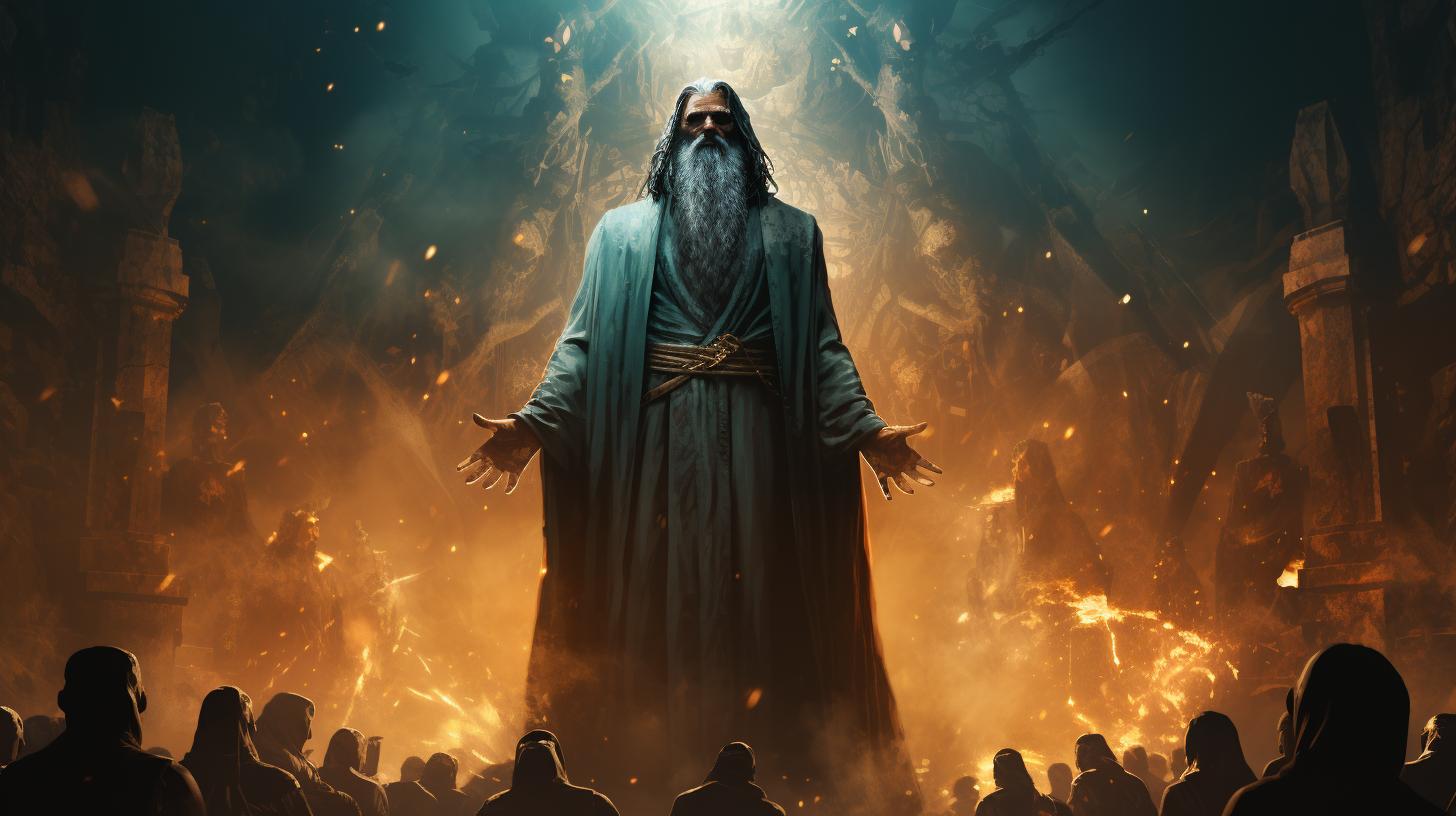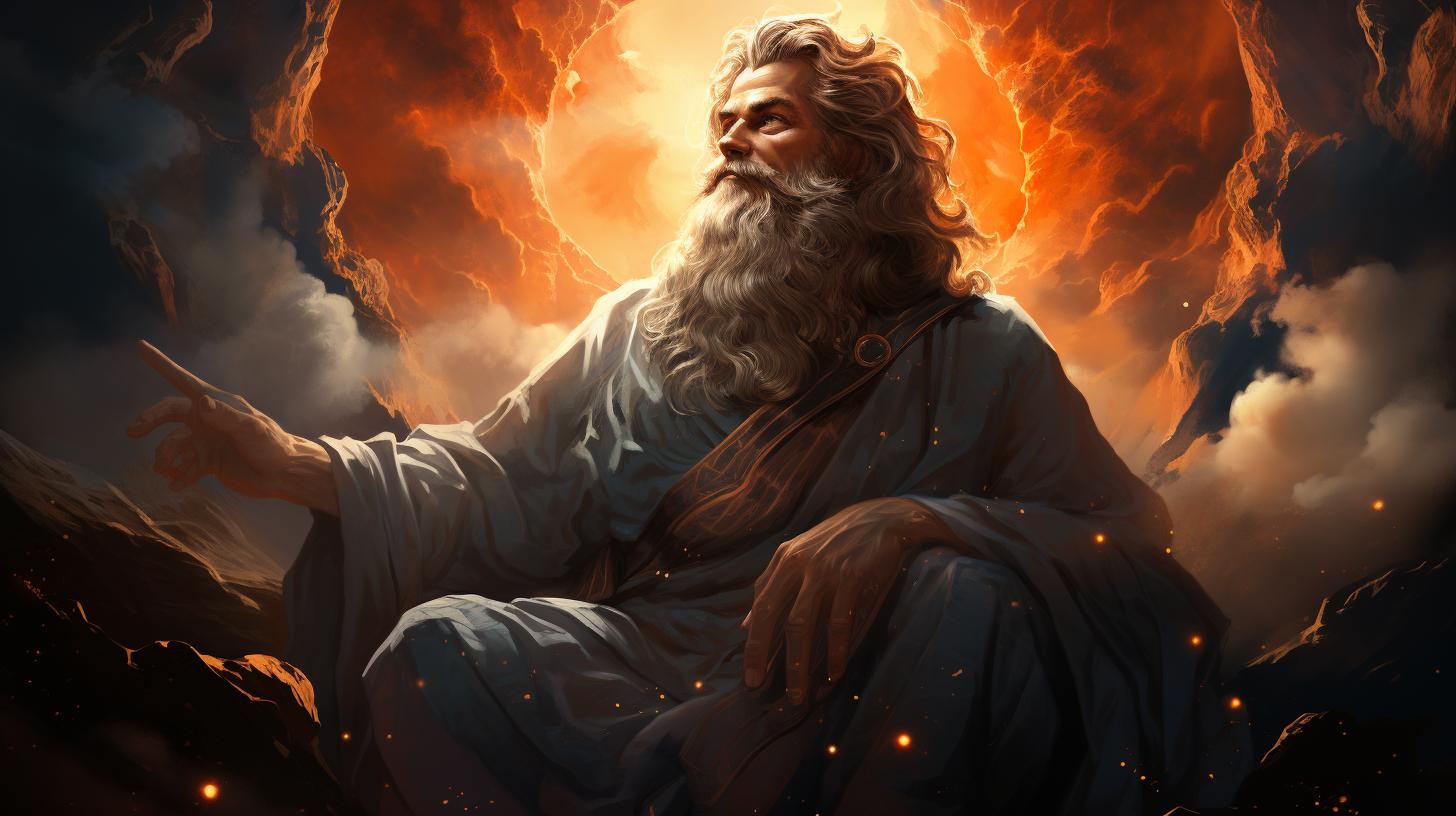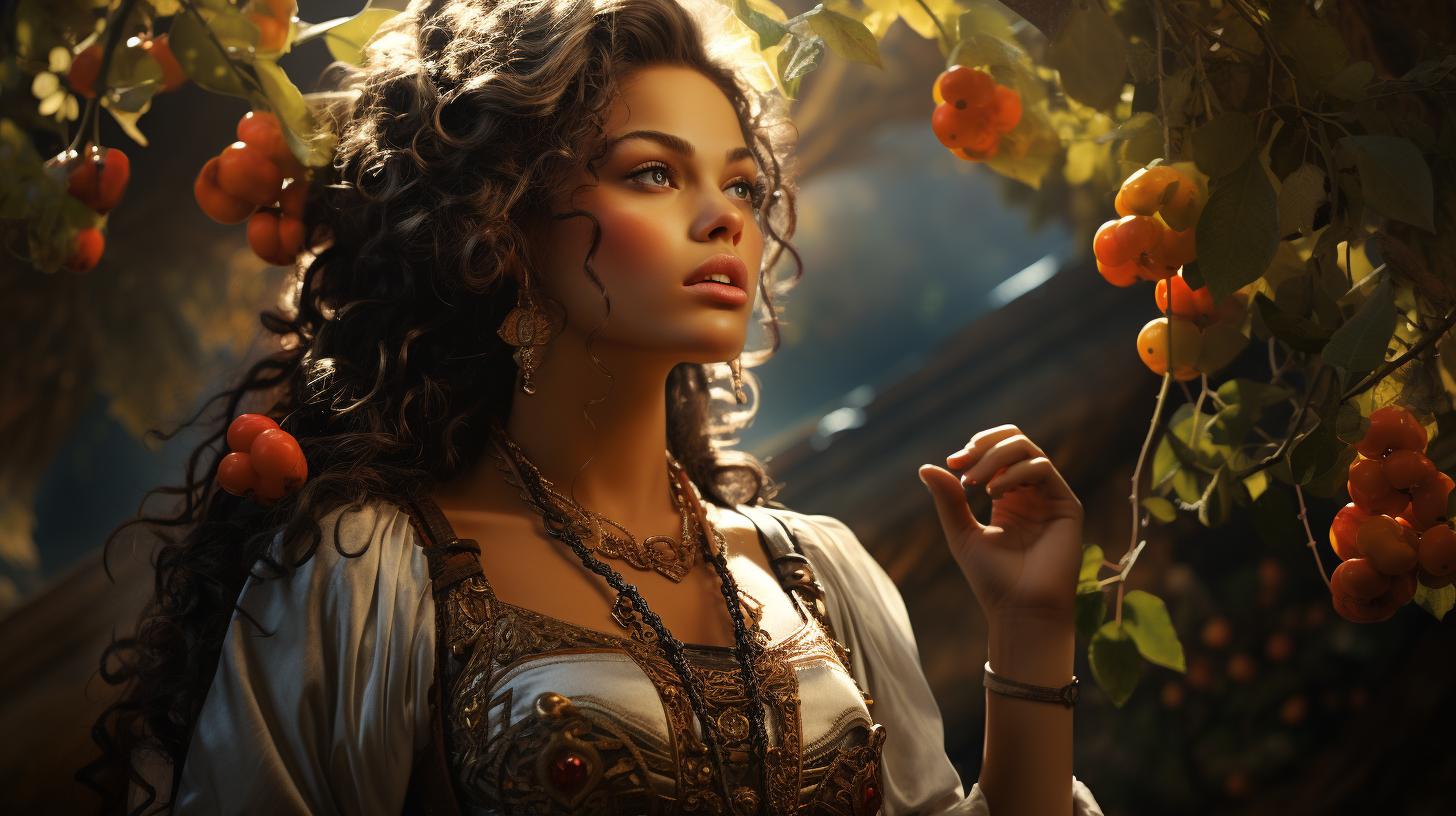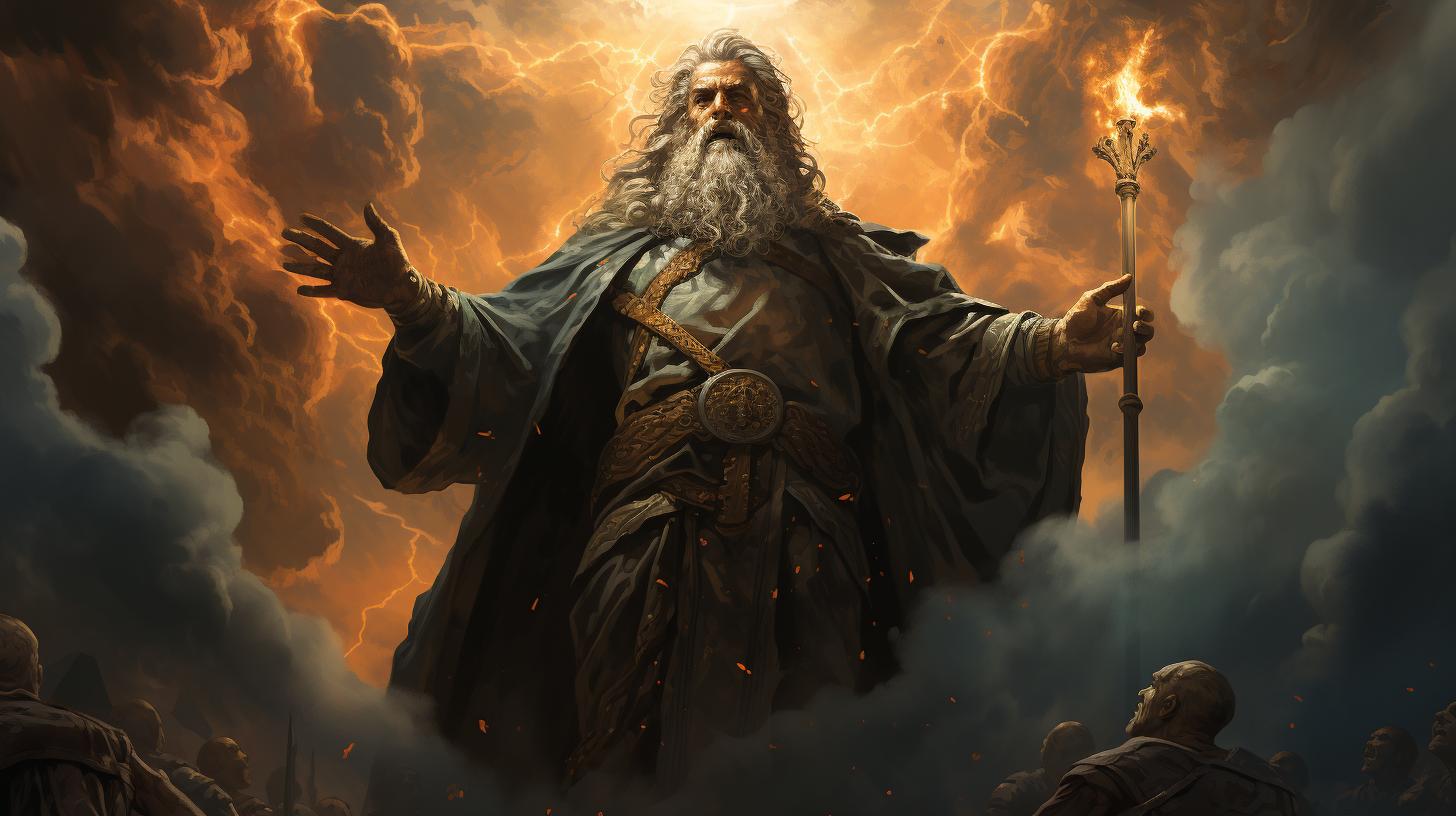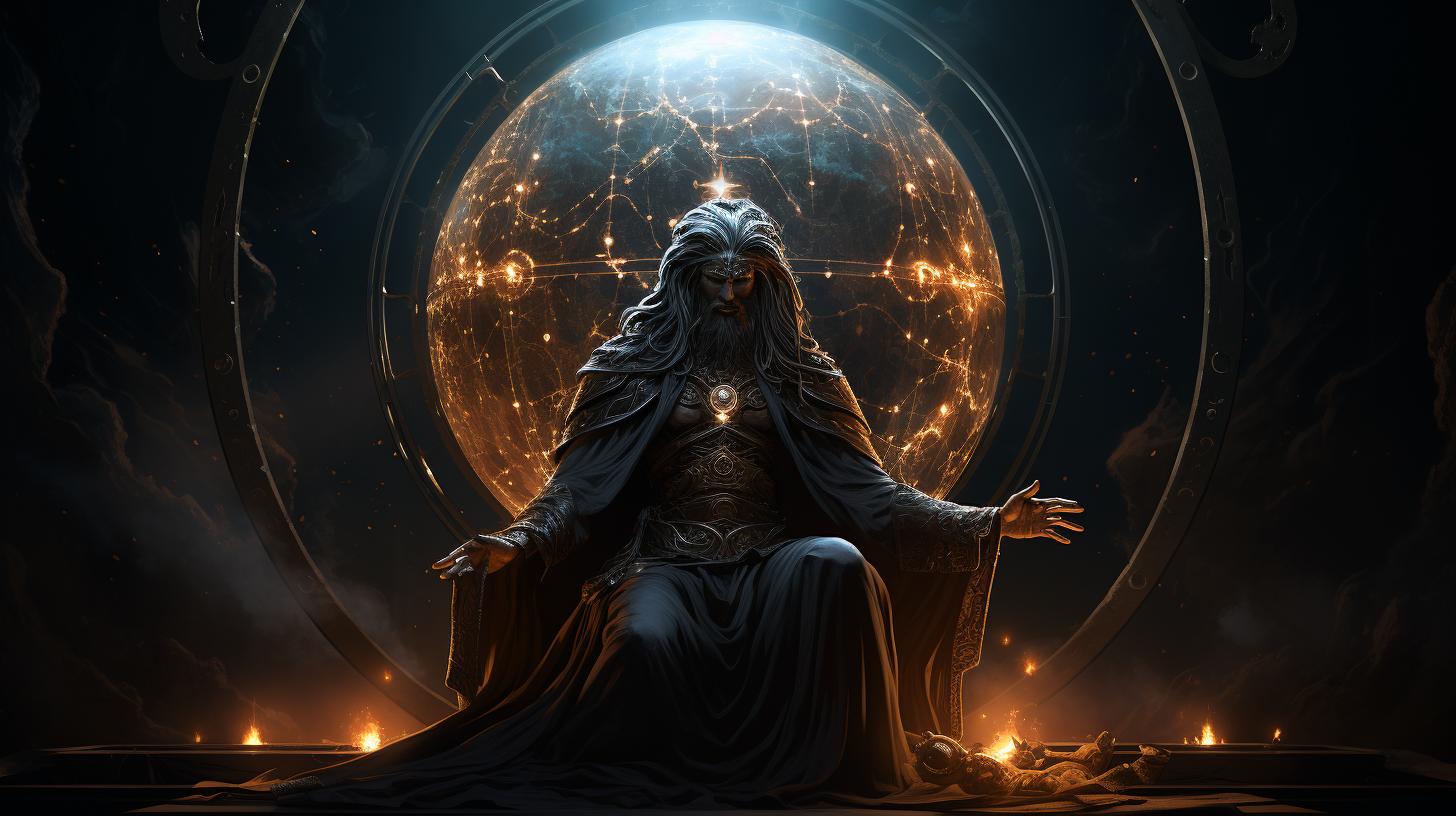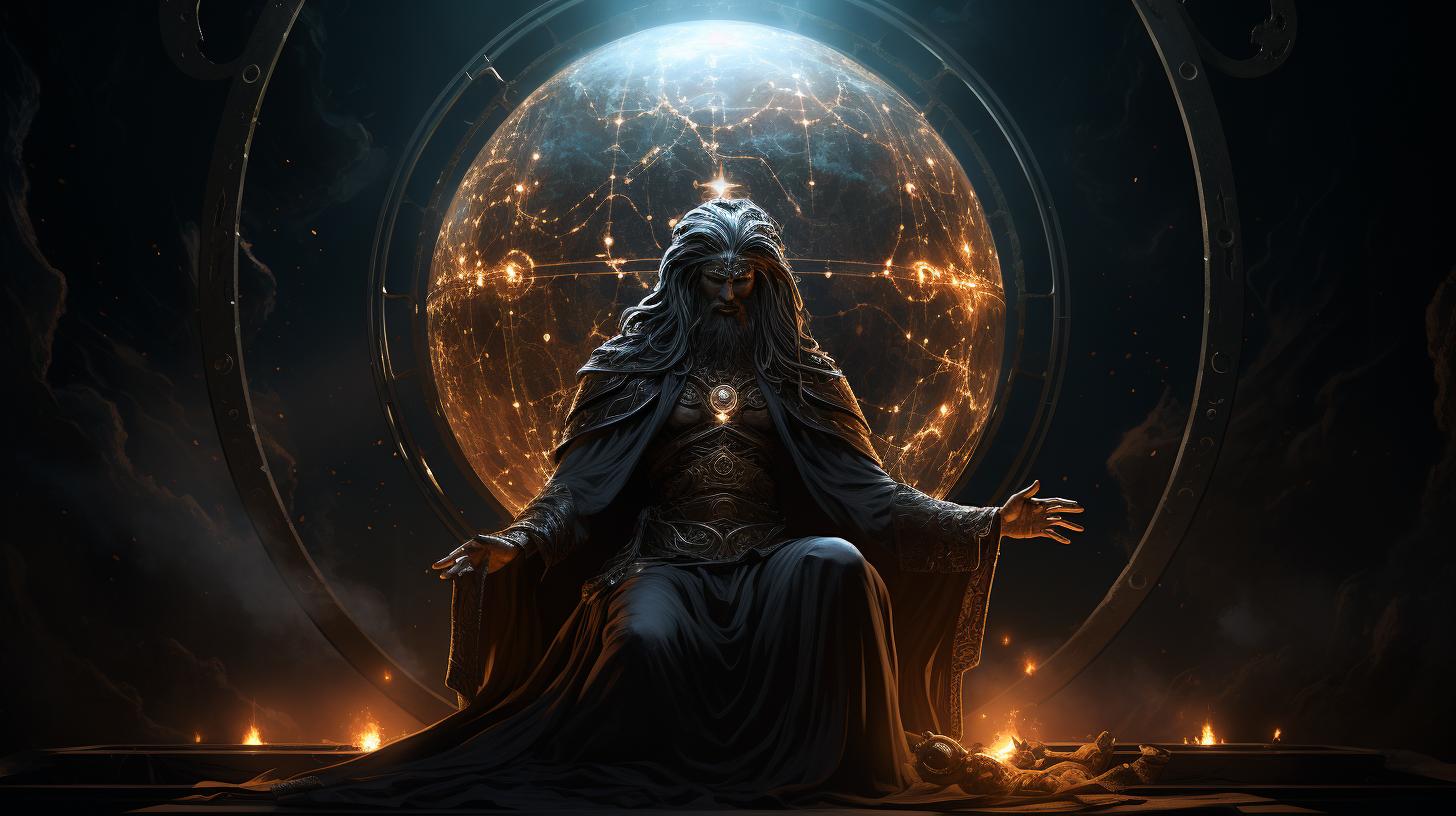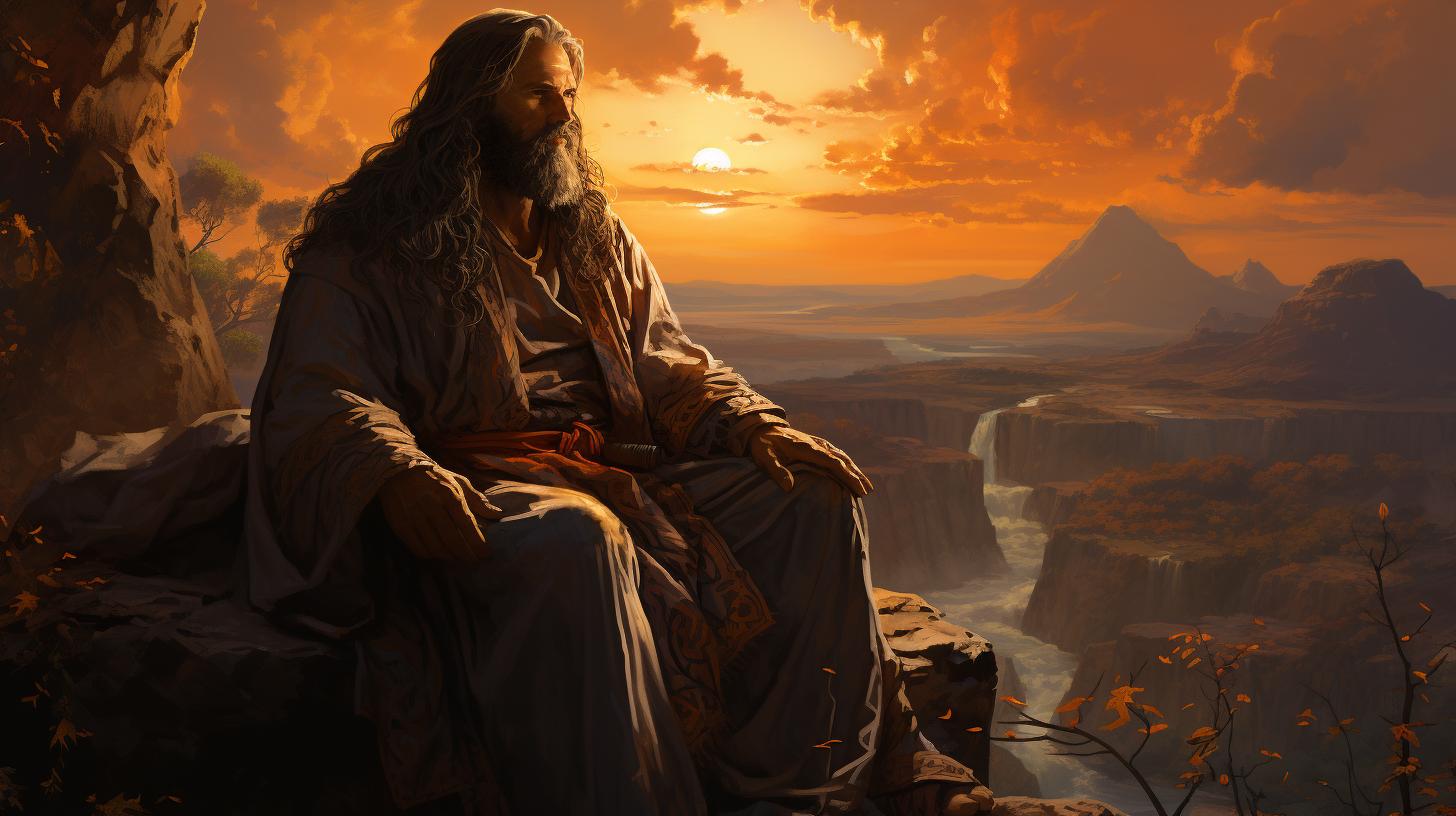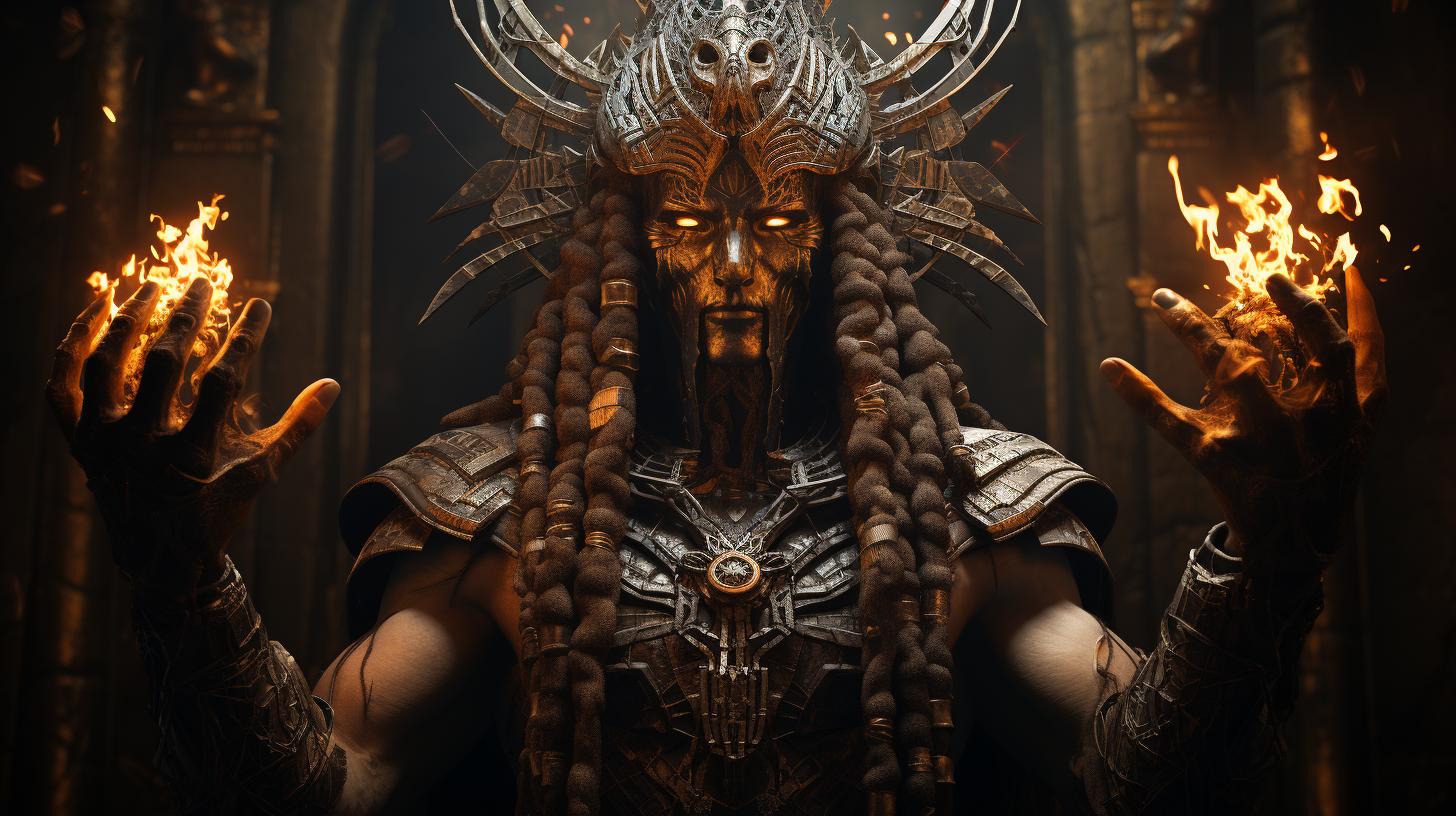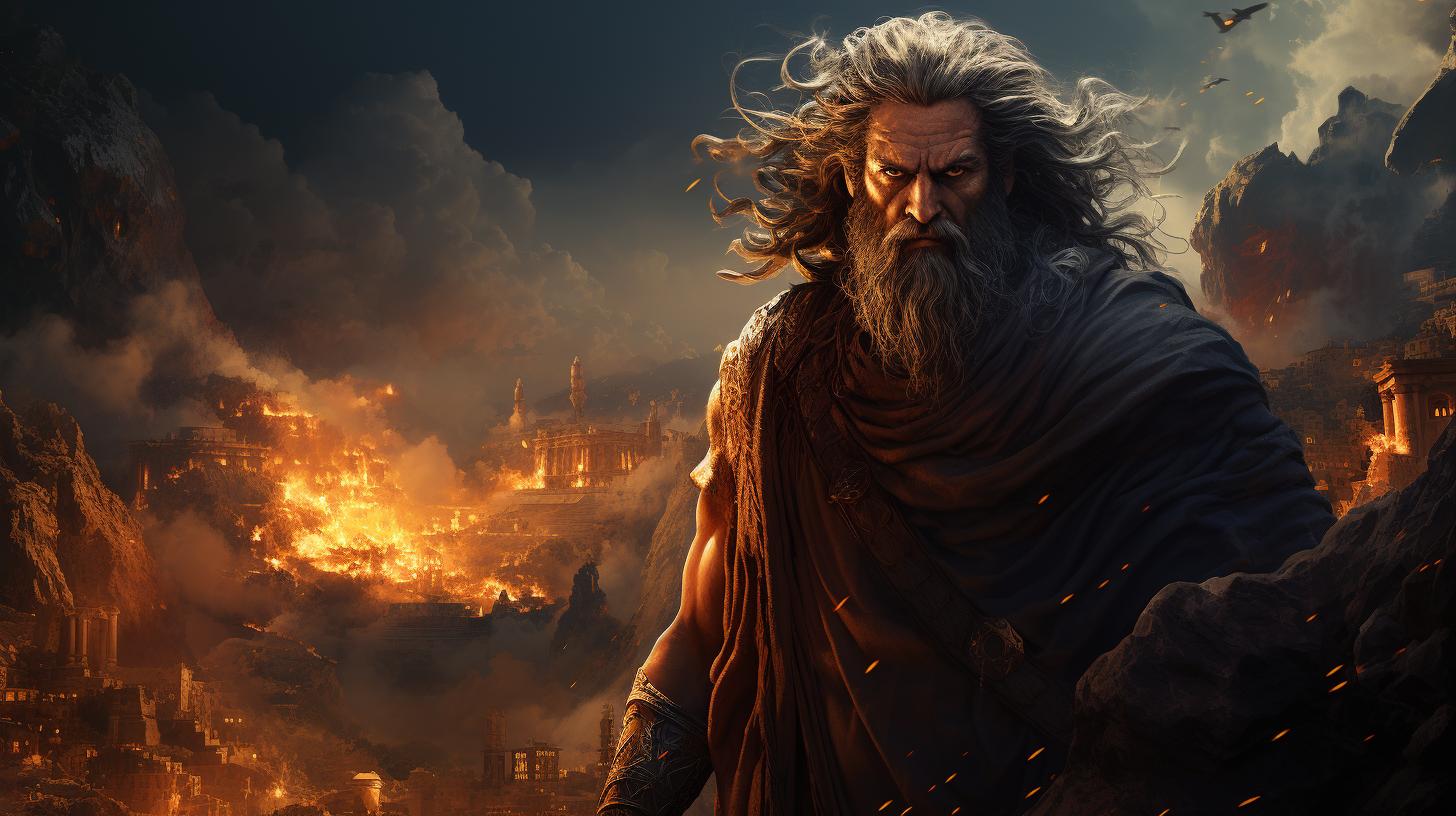Canaanite God Horon: Unveiling the Ancient Deity’s Mysterious Powers
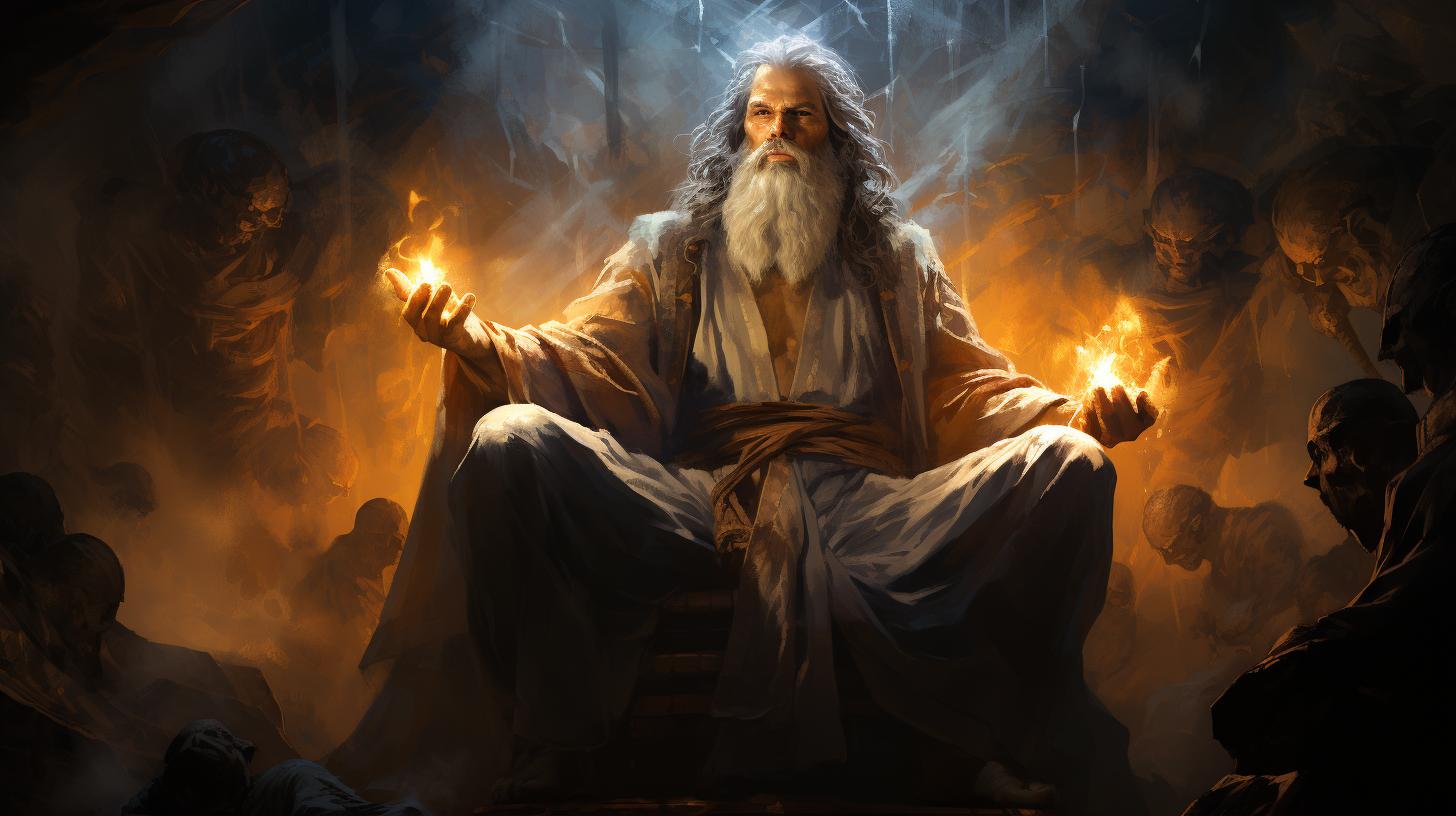
The Canaanite god Horon played a significant role in ancient religious beliefs and practices. Historical evidence and Ugaritic texts attest to Horon’s presence and associations with magic and exorcisms.
Additionally, Horon was worshiped in Giza and Ugarit, and had connections with other deities like Harmachis. The influence of Horon extended beyond Egypt, being referenced in Phoenician, Punic, and Hebrew sources.
However, conflicting interpretations and controversies surround Horon’s name, character, and symbolism. Throughout this article, we will explore the various aspects and significance of the Canaanite god Horon.
Overview of Canaanite Deities
Canaanite Pantheon and Religious Beliefs
The Canaanite pantheon was a diverse collection of gods and goddesses worshipped in ancient Canaan and the surrounding regions.
These deities played a significant role in the religious beliefs and practices of the Canaanite people. The pantheon consisted of various gods and goddesses, each associated with different aspects of life including fertility, nature, war, and wisdom.
Role of Canaanite Gods in Ancient Societies
Canaanite gods held a central position in the ancient societies of Canaan and neighboring regions. They were believed to possess immense powers and were worshipped for their ability to influence various aspects of life.
Canaanite gods were considered intermediaries between humans and the divine realm, and their worship involved rituals, sacrifices, and offerings to seek blessings and protection. These gods were believed to have control over natural phenomena, fertility, and the overall well-being of the society.
Background of Canaanite God Horon
The background of the Canaanite god Horon provides insights into his historical evidence, attestations, and his prominent presence in Ugaritic texts.
Historical Evidence and Attestations
The historical evidence of Horon’s existence primarily comes from ancient texts and inscriptions found in Canaanite and Egyptian archaeological sites. These include references in Ugaritic texts, as well as mentions in Phoenician, Punic, and Hebrew sources.
These attestations illustrate the widespread worship of Horon across different civilizations, highlighting his significance in the religious beliefs of the ancient Near East.
Horon in Ugaritic Texts
Ugaritic texts shed further light on Horon’s role and position in Canaanite mythology. These texts depict Horon as a deity associated with magic and exorcisms, similar to the mašmāšu or āšipu figures in Mesopotamian cultures.
While Horon’s importance in Ugaritic religion might have been relatively lesser due to the absence of his name in city-offering lists, his association with magical practices and his appearances in Ugaritic texts solidify his place in Canaanite religious traditions.
Worship and Cult of Canaanite God Horon
The worship and cult of the Canaanite god Horon played a significant role in religious practices in Giza and Ugarit. Horon’s presence in these ancient cities solidified his importance and impact on the local communities.
Horon’s Presence in Giza and Ugarit
Giza, Egypt, was one of the main centers where Horon was worshipped. He was revered as a deity associated with magic and exorcisms. The people of Giza sought Horon’s assistance in warding off malevolent forces and protecting their communities from harm.
In Ugarit, located in present-day Syria, Horon’s presence was also recognized. While his significance in Ugaritic religious texts may be considered minor, his role as a god associated with magic and exorcisms persisted.
However, it’s worth noting that Horon’s name does not appear on any offering lists in Ugarit, indicating a possible lower level of importance in the Ugaritic pantheon.
Horon’s Associations with Harmachis and Other Deities
Horon held a close association with Harmachis, an Egyptian deity linked to the rising sun and often depicted as a lion-headed figure.
This connection suggests an intermingling of beliefs and pantheons between Canaanite and Egyptian cultures.
Furthermore, Horon’s interactions with other deities in different religious contexts demonstrate his versatility and adaptability. While predominantly known for his role in magic and exorcisms, Horon was also considered a god of healing and protection.
His divine influence extended to fields, where he was revered as a guardian and advocate for agricultural abundance.
This integration of Horon into multiple deity associations highlights the complexity and interconnectedness of ancient mythologies and reinforces the flexibility of religious beliefs and practices in honoring Canaanite god Horon.
Aspects and Characteristics of Canaanite God Horon
The Role of Horon in Magic and Exorcisms
The Canaanite god Horon played a crucial role in the realm of magic and exorcisms. According to Ugaritic texts, Horon was considered a specialist in the field of magic, comparable to the Mesopotamian mašmāšu or āšipu.
His association with the supernatural gave him the ability to ward off evil spirits and perform rituals of purification and protection. Horon’s expertise in exorcisms made him a sought-after deity for those seeking relief from spiritual afflictions and malevolent forces.
Horon’s Connections to Healing and Protection
Besides his association with magic and exorcisms, Horon was also revered as a god of healing and protection. In ancient Egyptian beliefs, he was invoked to counteract the influence of harmful creatures such as wolves, ensuring the well-being and safety of communities.
As a protector of the fields, Horon safeguarded crops and livestock from threats. This connection with the pastoral and desert realms solidified his role as a guardian figure, capable of shielding individuals and their belongings from the perils of the natural environment.
Horon’s diverse attributes and functions highlight his significance in ancient Canaanite and Egyptian cultures. Whether as an adept magician or a benevolent protector, Horon’s presence loomed large in the religious practices of the time.
Horon in Ancient Egyptian Beliefs and Practices
Horon, the Canaanite god, had a significant presence in the ancient Egyptian pantheon, integrating into their religious beliefs and practices. This section explores the integration of Horon into the Egyptian pantheon and the influence of his cult on other Egyptian deities.
Horon’s Integration into the Egyptian Pantheon
Upon his arrival in Egypt, Horon’s worship merged with existing Egyptian religious practices, leading to a syncretic fusion of beliefs. The Egyptians identified Horon as an aspect or form of the god Harmachis, who was associated with the rising sun and the powerful solar deity Ra.
This fusion resulted in Horon being attributed with solar characteristics and seen as a protector and healer.
Influence of Horon’s Cult on Other Egyptian Deities
The cult of Horon had a discernible impact on various Egyptian deities, particularly those associated with healing, protection, and the wilderness. He was often connected with the desert and conceived as a god of shepherds and other inhabitants of these environments.
Furthermore, Horon’s healing aspect contributed to his association with other Egyptian deities known for their healing abilities, such as Sekhmet and Thoth.
Additionally, Horon’s protective nature extended to the fields and agricultural endeavors.
As such, he influenced deities like Osiris, associated with fertility and agriculture, and Shai, the personification of fate and destiny. Horon’s presence in Egyptian religious practices contributed to the diverse tapestry of deities and their interconnected roles and attributes.
- Horon’s integration into the Egyptian pantheon:
- Identification with Harmachis, a solar deity
- Attributes of protection, healing, and solar symbolism
- Influence on other Egyptian deities:
- Association with shepherds and the wilderness
- Connection with healing deities like Sekhmet and Thoth
- Impact on agricultural deities like Osiris and Shai
Horon’s Influence Beyond Egypt
The divine presence of Horon extended beyond the borders of Egypt, leaving its impact on diverse cultures and religious traditions.
This section explores Horon’s influence in Phoenician and Punic sources as well as its references in the Hebrew Bible.
Horon in Phoenician and Punic Sources
In Phoenicia and Punic territories, Horon’s worship found resonance and assimilation among the local deities and religious practices. His name appeared in various inscriptions and texts, indicating the acceptance and integration of his cult within these regions.
Phoenician and Punic sources demonstrate Horon’s association with protective and agricultural aspects, highlighting his role as a guardian and provider. His name invoked blessings and sought divine intercession for prosperity, fertility, and safeguarding against malevolent forces.
References to Horon in the Hebrew Bible
The Hebrew Bible contains references to the Canaanite god Horon, particularly in place names such as Beth-Horon. These mentions indicate the historical and cultural significance of Horon within the context of ancient Israelite beliefs and their interactions with neighboring Canaanite cultures.
Although the references to Horon in the Hebrew Bible are limited, they attest to the continued awareness and influence of this deity within the cultural and religious experiences of the Hebrew people.
In summary, Horon’s influence extended beyond Egypt and left its imprint on Phoenician, Punic, and Hebrew cultures. His assimilation into these contexts showcases the adaptability and integration of Canaanite religious traditions into diverse belief systems throughout the ancient Near East.
Interpretations and Controversies Surrounding Horon
Interpreting and understanding the essence of the Canaanite god Horon has been a subject of ongoing debate and scholarly inquiry. Various theories and conflicting views have emerged regarding Horon’s etymology, character, and symbolism.
Etymological Theories of Horon’s Name
The origins of Horon’s name have sparked significant interest among researchers. One prevailing theory suggests a connection between Horon and the Semitic root ḥwr, which could potentially signify “the deep.” Another proposed etymology draws parallels between the Arabic word ḥaur, denoting the bottom of a well or a wide depression, and the Hebrew word ḥôr, meaning “cave” or “hole.”
Additionally, some propose a cognate relationship between Horon and the Arabic word ḥourroun, meaning “hawk.” Notably, the theory suggesting a correlation with the ethnonym ḫurri (Hurrian) is no longer considered credible.
Conflicting Views on Horon’s Character and Symbolism
Disagreements persist regarding the precise nature and symbolism of Horon. Some argue that he was a “deity of destruction” due to his association with the “tree of death,” but this interpretation has faced significant criticism.
Alternatively, it has been proposed that the passage mentioning the “deadly tree” actually refers to plants used in exorcisms, shifting the focus away from notions of destruction. The controversy surrounding Horon’s character extends beyond this aspect.
Scholars have debated whether Horon was primarily a god of magic and exorcisms or if his role also encompassed healing and protective aspects. Unraveling Horon’s true character remains a vibrant area of scholarly exploration.
.

